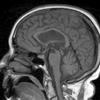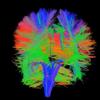Benedict Carey appears in the following:
How Our Brains Absorb Information - And How to Improve Learning
Wednesday, September 10, 2014
Why Daydreaming & Distractions Can Help Us Learn
Friday, September 05, 2014
New Study Suggests Father's Age Related to Autism, Schizophrenia
Thursday, August 23, 2012
Rate of Autism Diagnoses Rises Dramatically
Friday, March 30, 2012
Parkinson's Drug Improves Condition of Patients with Brain Injuries
Thursday, March 01, 2012
According to new research published in the New England Journal of Medicine, daily doses of a drug commonly used to treat Parkinson's disease has shown to improve function in people with brain injuries. The large-scale study showed that the drug, amantadine, can make a measurable difference for patients suffering from traumatic brain injuries. Doctors have experimented with drugs like amantadine to treat such patients, but this is the first time a study proved its effectiveness.
Redefining Autism: How it Could Change Treatment and Policy
Friday, January 20, 2012
The Diagnostic Statistical Manual (DSM) is a dictionary that defines and classifies all mental health disorders. First published in 1952, the DSM is used by everyone from clinicians to pharmaceutical companies to policy makers. Since its inception, the DSM has been revised only four times — one such occasion was in 1980 when homosexuality was no longer defined as a mental disorder. In the fifth edition, another big change may come to the DSM. Autism is up for a redefinition which could potentially reduce the number of people considered "autistic" by half.
Twitter Study Tracks the World's Mood Swings
Friday, September 30, 2011
Two Cornell researchers used a large-scale study of posts on Twitter to track the world's mood shifts, and the discovered a pattern that transcends nationalities and climate. The study focused on Tweets from two million people, in 84 countries, posted at all times of day, month, and year. They found some fascinatingly similar patterns. Might their study have any implications for the way people do research going forward?
Report: Brain Implant Could Restore Memory Loss
Friday, June 17, 2011
According to a new report, scientists have come one step closer in the development of neuroprosthetics that may help restore memory loss. A brain implant, tested in rats, successfully restored lost memories and strengthened old ones. Its use in humans will require far more research. Benedict Carey, science reporter for The New York Times, explains the findings.
Strong Evidence for ESP?
Thursday, January 06, 2011
Science fiction or science? A new report in the well-respected Journal of Personality and Social Psychology cites evidence for what seems to be extrasensory perception. This has caused some outrage in the scientific community, with one leading voice calling the decision to publish the article "pure craziness."










